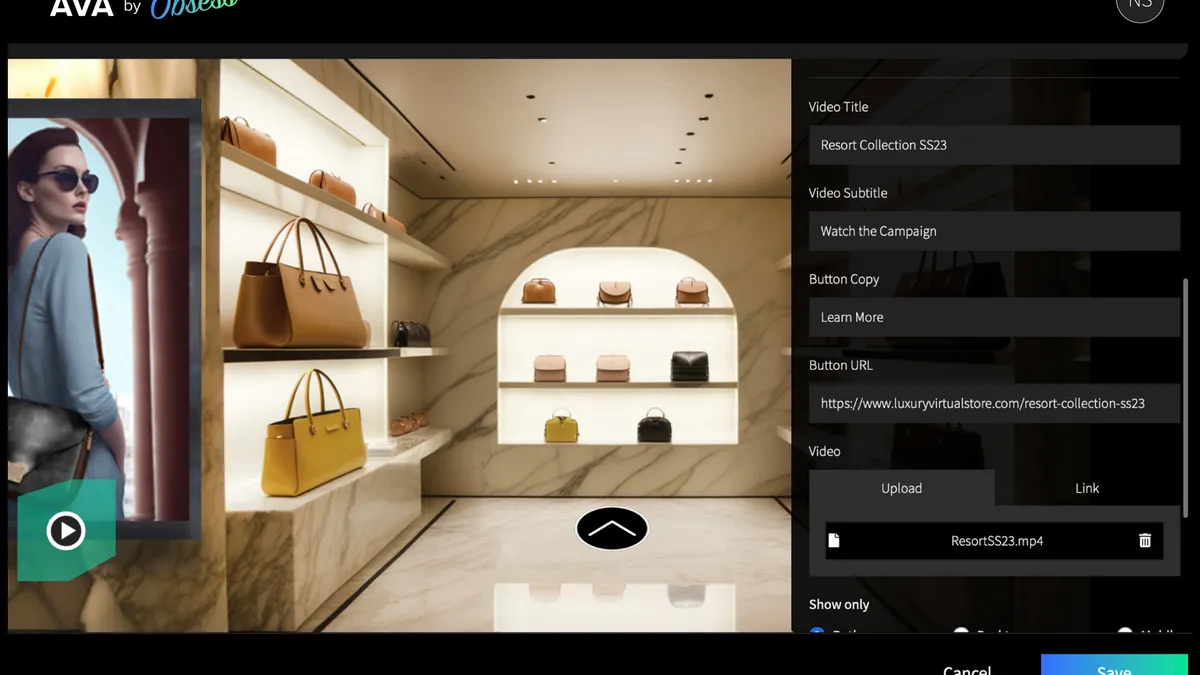Dive Brief:
- Experiential e-commerce company Obsess launched a new offering on Tuesday, Ava by Obsess, which gives brands the ability to build their own virtual stores and customizable 3D e-commerce experiences.
- The service has been in development for the last two years. Obsess, which has helped create more than 200 virtual stores for brands like Ralph Lauren and Charlotte Tilbury, used feedback and data from its past partners to build the offering.
- Through the virtual store builder, brands can add products to the space and enable clickable content like in-scene videos, social media integration and branded avatars. The platform is accessible through an annual subscription with Obsess.
Dive Insight:
Obsess’ technology currently powers hundreds of virtual stores featuring interactive content, livestreaming, gamification, social shopping and more.
“Much like Shopify revolutionized e-commerce for small businesses by providing them with traditional DIY storefront capabilities, Ava is now enabling brands to build and manage their own next-generation, immersive 3D virtual storefronts, dynamically changing merchandising, content and styling as needed throughout the year,” Obsess founder and CEO Neha Singh said in a press release.
The platform offers a self-serve solution to virtual store management, allowing brands to customize features like product imagery and placement over time. Upon uploading a 3D media file, Obsess’ patented rendering technology converts it to be visible in a large-scale 3D environment.
Obsess' virtual store builder allows brands to create and manage their own virtual experiences rather than rely on tech companies to develop them. Brands have invested more in virtual experiences recently. For example, hair care brand Living Proof worked with ByondXR for its metaverse store, which featured an AI-generated beauty quiz. Men’s underwear brand Saxx teamed up with Emperia for its virtual shopping experience to promote a new collection.
As virtual reality shopping grows in popularity, companies are even incorporating product launches, fashion shows and showcases into their virtual spaces. For this year’s Metaverse Fashion Week, Tommy Hilfiger debuted a multi-metaverse hub powered by Emperia and with participation from DressX, ReadyPlayerMe, Spatial, Roblox and Decentraland.















